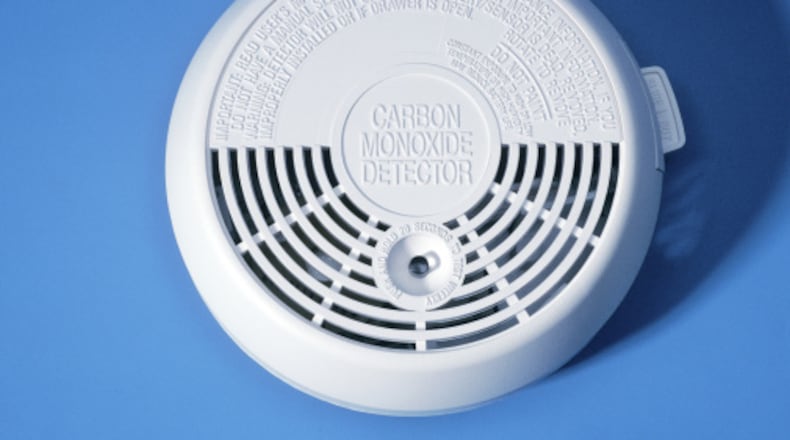‘Tis the season to remember the region’s enchanting holiday traditions
“There’s quite a few (incidents) in the last 10 years,” Eckert said. “Pretty heavy, impactful, stories about CO poisoning, and we just want everybody to have a sensor in their home.”
Often called the invisible killer, CO is an odorless, colorless gas created when fuels such as gasoline, wood, coal, natural gas, propane, oil, and methane, burn incompletely. Some signs and symptoms of CO poisoning are nausea, head aches, weakness, and dizziness. If you suspect you have CO poisoning, immediately evacuate the area and call 911.
Dayton youth get colorful basketball court thanks to Project Rebound
Eckert estimated two-thirds of recent CO incidents have occurred because people were firing up gas furnaces for the first time in the year and the system was either not recently inspected or it needed cleaning. Over the summer, birds can nest in vents or cracks can happen, causing dangerous leaks to get into the home.
“You need an alarm if you have an attached garage or anything that runs on gas,” Eckert said. “If nobody does anything else, if they don’t have a CO alarm, we provide them in certain circumstances. We use them if we go to a house and it’s expired, we will replace. Or if family can’t afford one, we will replace.”
Attached garages have become more hazardous in recent years as push-start car remotes are more common. Seniors especially, Eckert said, will forget that many cars do not have automatic timers to turn the car off when it’s heating up in the garage.
Above all, Eckert said, home owners should make sure to have their detectors replaced every 5 years. Sleeping areas are typically the best place to position sensors.
For any questions regarding smoke and carbon monoxide detectors and best practices for each, or to report a hazard or issue, you can call the Fire Prevention Bureau at 937-898-2261.
About the Author
